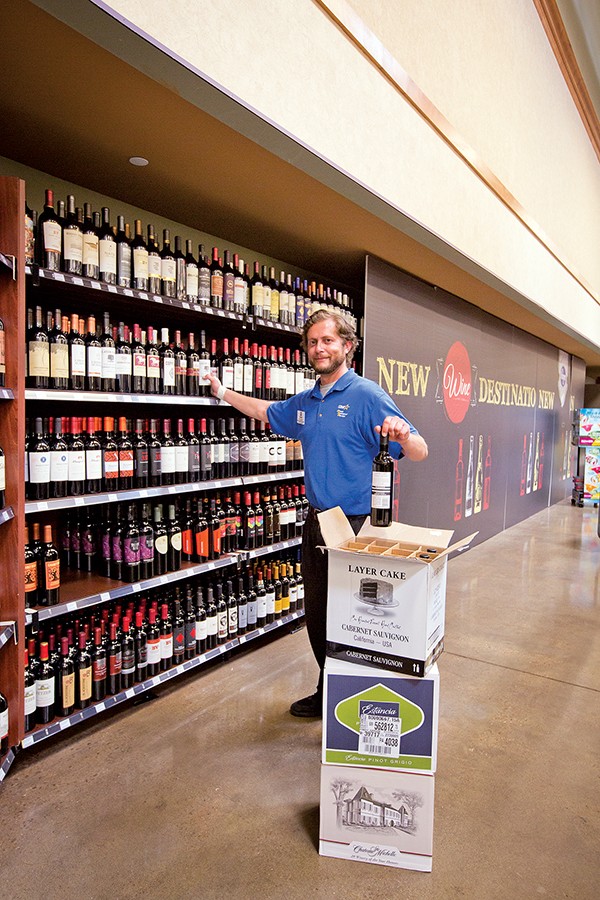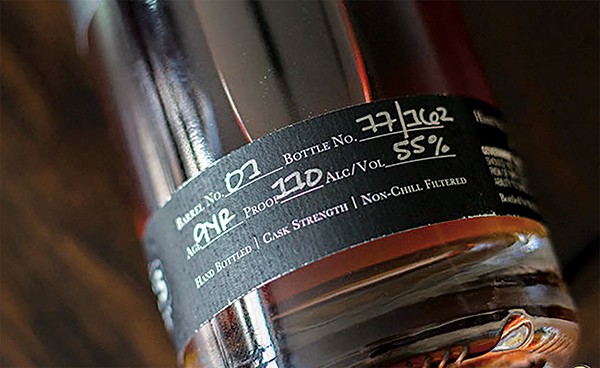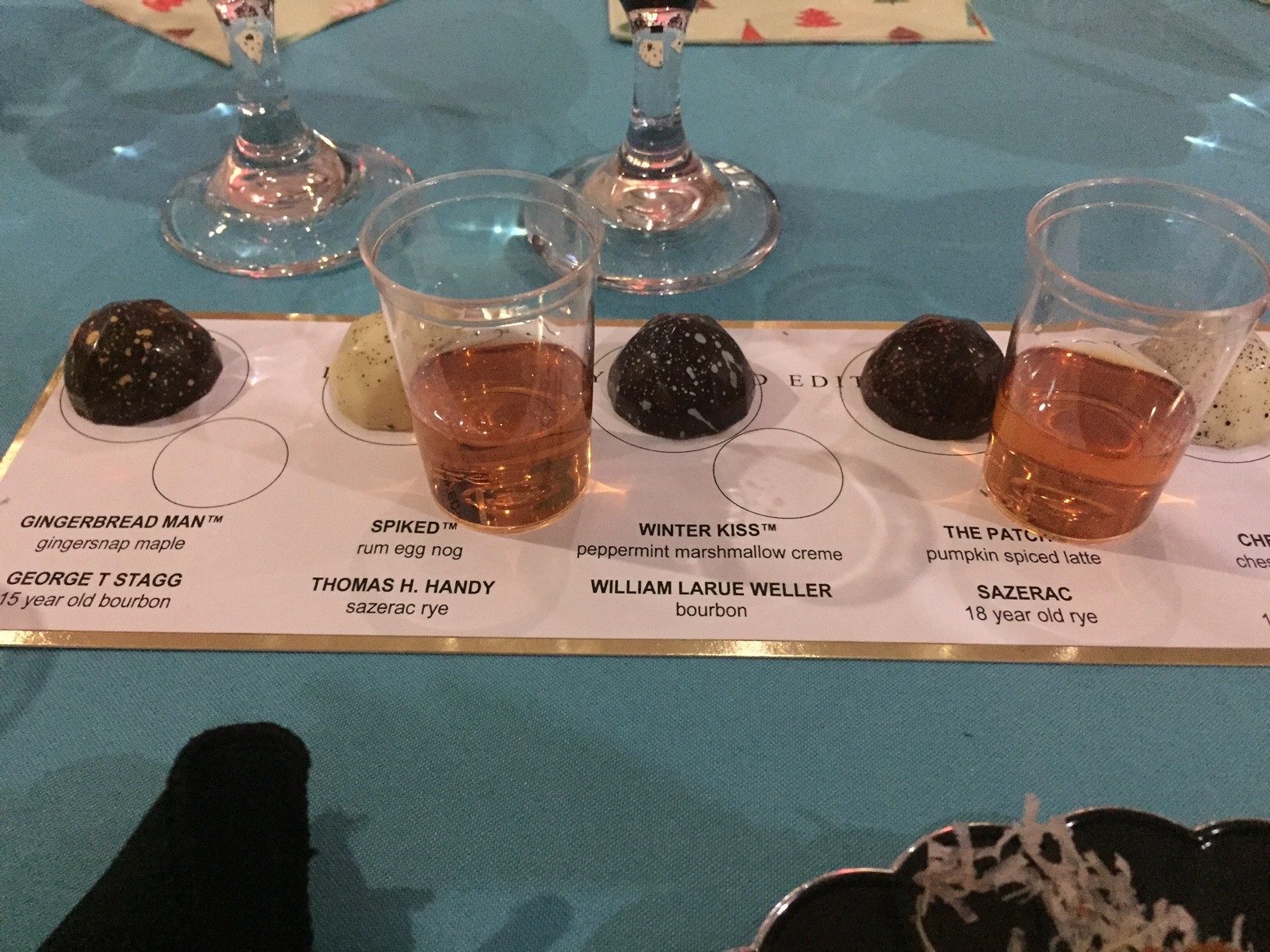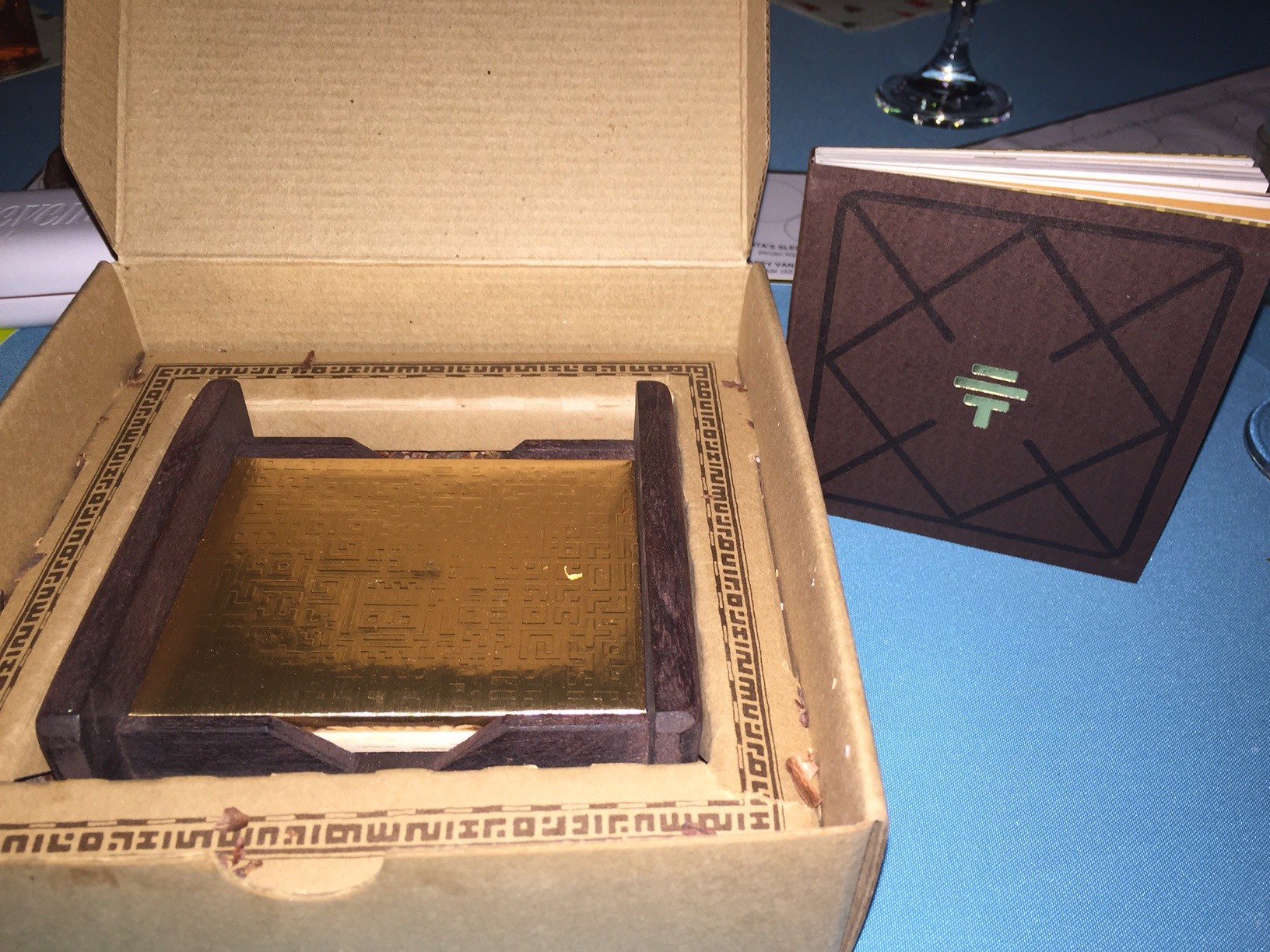On Friday, July 1st, grocery stores in Tennessee will begin selling wine. Consider it the ripened grape of a years-long political battle, one that has created the biggest change in Tennessee booze laws since Prohibition.
Tennessee is now one of 40 states that allows wine sales in grocery stores. State lawmakers passed the legislation in 2014, and since then, lawmakers in Colorado and Pennsylvania have passed similar wine-in-grocery-stores bills. But before Tennessee passed its wine bill, it had been 24 years since the last time a state passed a law allowing grocery wine sales.
“So, we don’t really know what to expect,” said Elizabeth G. Mall, a sales representative with Delta Wholesale, Inc. “July 1st is going to happen, and it’ll open the floodgates. Then, we’ll see.”
The Beverage Battle
Nashville was cold on that Monday in early March 2014; “weather-worn” was how The Memphis Flyer‘s Jackson Baker described it. But there were enough members of the Tennessee Senate to make a quorum. So, they got to work and passed SB 837, the “wine-in-grocery-stores bill,” on a vote of 23-4. It was a procedural move, really, as the Senate had approved its version of the measure months before, as had the House. But the bill needed that final vote to reconcile the House and Senate versions, before it could head to Governor Bill Haslam’s desk. Haslam signed it into law on March 20th.
Lieutenant Governor Ron Ramsey was a prime mover of the bill and noted that it “allows for the expansion of consumer choice while protecting small businesses that took risks and invested capital under the old system.”
Ramsey’s quote was precise, exacting, the soundbite-iest soundbite you could possibly squeeze from a Christian, pro-business Republican. And it shows just how far the wine bill had come. Novels could be filled with the words spilled over the wine issue in its nine years under legislative review in Nashville. By 2014, the message had been so refined that Ramsey was able to crystallize it in one, easy-to-sell phrase.
Grocery store owners and liquor store owners (and both sides’ lobbyists) had clashed in the halls and great chambers of the Tennessee General Assembly since 2008. Grocery stores argued for “customer convenience” (code for “big business should be allowed to sell wine”). Liquor stores argued the change would eat their profits, close their stores, and put thousands of Tennesseans out of a job (code for “breaking the decades-old monopoly liquor stores had held on wine sales”). Liquor stores were also helped by the unlikeliest of allies: the religious right.
During the debates, Randy Davis of the Tennessee Baptist Convention reminded legislators of the liquor-by-the-drink law they’d passed years before, which allowed cities to vote on whether to legalize liquor sales in restaurants. Davis was quoted in the Knoxville News Sentinel saying that the law had torn families apart and ruined friendships in Pigeon Forge. He wasn’t sure where wine-in-grocery stores would lead, but he begged lawmakers to vote against it.
The Tennessee Grocers & Convenience Store Association had formed a campaign for grocery sales called Red White and Food in 2007. The campaign had powerhouse partners such as Walmart, Kroger, BI-LO, Food City, Food Lion, Publix, and SuperLo Foods. Even with such big-business clout behind it, the issue (like a fine wine?) needed time to mature.
Red White and Food kept at it, bringing a new bill to Nashville every year. Most years it was all but dead on arrival. It got close in 2013 but was defeated in a House committee by one (flip-flopped) vote. At the end of that session, Ramsey, the powerful Speaker of the Senate, said that the bill had a real shot of passing in 2014. This gave the issue a name-brand, high-level push and nearly a year for the interested parties to sort it all out.
They came up with a compromise that promised a little something for almost everyone. Grocery stores got to sell wine. Liquor stores got to expand their offerings with beer, light food, mixers, and more — and they got a year to settle into their new situation. State coffers got — or will get — an estimated additional $13 million in tax revenues.
The religious right walked away empty-handed.
Consumers will get added convenience and, perhaps, lower prices on booze across the board. Wine economists (yes, that’s a thing) at Cornell University said in a 2011 study that allowing grocery sales of wine lowers beer prices by about 4 percent, wine prices by about 13 percent, and liquor prices about 2 percent.
However, the Tennessee wine-in-grocery-stores law requires grocery stores and liquor stores to mark up wine 20 percent from the wholesaler’s price.
William Cheek, an alcoholic beverage law expert with Nashville’s Bone McAllester Norton law firm, said it’s an oft-forgotten part of the law. “The 20 percent markup is based on the most-recent amount invoiced by the wholesaler,” Cheek explained. “For example, if a store buys wine at $5, the state minimum price is $6. If the store orders more of the same wine, and the wholesaler charges $6, all of the new and all old inventory in the store must be marked up to $7.20.”
Prices and more will be unveiled to all on July 1st, but one thing seems certain: For the first time in Tennessee, your bananas can ride in the same cart as your bottle of red.
Bracing for Impact
Southwind Wine & Spirits on Hacks Cross is located right next door to Costco, which never mattered much in terms of competition until the bill passed allowing wine sales in grocery stores.

local products at Doc’s.
“It’s a total game-changer for us,” said Southwind general manager Ryan Gill. “We’re going to have to transition to more liquor sales. We need to make sure we have a more knowledgeable staff that can give over-the-top customer service.”
Gill’s sentiments echo a widespread belief among local liquor store owners and retailers that, beginning July 1st, their businesses will be negatively impacted.
As a concession for liquor stores, the wine bill allowed sales of lower-alcohol beers, mixers, wine accessories, food, and other party supplies. Liquor store owners were allowed to diversify their products in July 2014, giving them a year’s head start.

at Doc’s.
Some stores, however, were limited on what they could add, based on space or competition from nearby grocery stores. At Southwind, Gill says they can’t sell much low-alcohol beer because Costco has that market cornered, but the bill also allowed liquor stores to start delivering alcohol to events. Since Southwind provides the wine and liquor for the St. Jude golf tournament, Gill said that part of the business has helped some — but not enough.
“To be honest, our wine sales make 65 percent of our business, and everything they’ve given us in return might make up 5 percent. It’s not a fair trade,” Gill said. “But at least we got something out of it.”
Joe’s Wines & Liquor in Midtown added a beer and wine growler station after the bill passed, and while owner Brad Larson admits that’s helped “keep our regulars satisfied,” he said the ability to add food and party supplies won’t make up for the business he expects to lose on wine sales.
“I never wanted to be a grocer, but we had to put in things like chips and dips, sausages, cheeses, spaghetti, and spaghetti sauce,” Larson said. “It’s like a mini-grocery.”
Buster’s Liquors & Wines underwent a major expansion that opened last December, adding about 6,000 square feet to the 10,000-square-foot space at Poplar and Highland.
“We were really fortunate as far as timing was concerned,” said Buster’s owner Josh Hammond. “The day the bill passed, we called up the folks next door and started discussions with them and Loeb Properties about acquiring that space.”
The expansion allowed Buster’s to more than double its cold storage, increasing space for beer and cold wines. They added a growler station with a Pegas growler fill that allows customers to store unopened growlers for a month. There’s also a new wine-tasting station featuring 12 wines at a time. Hammond said they’re not able to do tastings every night because of staffing issues, but he eventually aspires to that. According to Hammond, the expansion, plus the ability to add new products, has boosted sales at Buster’s.
“It’s definitely helping. We’re already at about 5 percent of volume for beer sales and about 2 percent for food and accessories,” Hammond said. “We’re carrying ice now and Yeti coolers. We just started carrying kegs this week.”
As for retaining wine customers, liquor store owners agree their edge may come from better customer service and competitive pricing. Some Kroger stores will have wine consultants but only the larger stores. In most grocery stores, customers will be left on their own to figure out what wine to pair with pasta or what wine is best for a pool party.
“I went in to Kroger the other day and asked for lentils, and a guy told me to try the frozen food section. So good luck with help finding a cabernet or a sauvignon blanc,” Larson said. “You’re not going to get any service at Kroger. I can tell you that.”
As for pricing, a provision in the bill requires all wine sellers — liquor stores and grocery stores — to mark up wines by 20 percent. But some liquor store managers say they’ll be able to sell wines cheaper because they can order more cases at a time.
“Where I think we have a bit of an advantage is we can store more cases than grocery stores, so whereas I might be able to buy 100 cases of a product, Kroger will not be able to because they don’t have the capacity to store those cases,” said Philip Forman, the general manager of Kirby Wines & Liquors. “The bigger deal we can buy, the better the price will be. We’re confident that, price-wise, they won’t be able to beat us.”
Because of all the uncertainty with the future of liquor store businesses, not many new stores have opened since the bill passed in 2014. But that didn’t stop Doc’s Wine, Spirits & More in Germantown, which opened last summer, right after stores were allowed to diversify products.
“It’s a weird time in our industry, and we were the only ones that opened coming right at the idea that wine will be in grocery stores,” said Gill, who, in addition to managing Southwind, also manages Doc’s.
To set themselves apart from nearby grocers, Doc’s is starting a weekly wine academy (with tastings) for customers, and they focus on selling locally made artisan goods, like meats from Porcellino’s Craft Butcher, Phillip Ashley chocolates, and caramels from Shotwell Candy Co.
“We’re trying to create a more fun environment than just going into a store and grabbing a bottle of wine,” Gill said.
Will the new products, tastings, classes, lower prices, and customer service help the liquor stores retain their customers? Only time will tell. Most local liquor store owners remain cautiously optimistic.
“We’re anticipating some of our business going away, but when the dust settles, after six months or a year, I think some of those people will come back, especially when they realize we’ll either match or beat their price,” Forman said.
Going Krogering?
You’ve got a shopping cart filled with pasta, tomatoes, garlic, olive oil, mushrooms, and fresh basil — everything you need to make spaghetti with homemade marinara. But what wine to pair with it? At most grocery stores around town, you’ll be left on your own to figure that out. But at 12 larger Shelby County Krogers, a full-time wine consultant will be on-site to offer help.

Derek Stamper is a wine consultant at Kroger.
The consultants will be overseen by Lauren Obermeier, the adult beverage specialist for Kroger’s Delta Division, which includes five states. Obermeier is in charge of all alcohol sales in the division. She explains what to expect from the new local Krogers’ wine selections and consultants. — Bianca Phillips
Flyer: Will Kroger be carrying high-end wines or mostly just low-cost varieties?
Lauren Obermeier: We will have everything from entry-level wines to very rare, high-end wines that we will get on special release. We’ll also have exclusive wines just for Kroger.
Are the wine consultants experts hired from outside the store or promoted from within?
The wine consultants were all promoted from within Kroger, and they have taken more than 24 hours of classroom education and another four to six hours of online education for wine. There will also be continued education for our wine consultants in the store. They’re very knowledgeable about wine, and they’re ready to help and assist our customers and even teach them about wine.
What sorts of questions can the consultants answer?
Customers can ask them about pairings, what’s new in the market, what’s trending. If they’re having a party, they can ask what wine they should buy? What kind of meat would you recommend to go with my chardonnay?
They can recommend food to buy with the wine you want or wine to go with the food in your cart. We also have [in-store] cheese shops, and the wine consultant can recommend what type of wine would go best with a certain type of cheese. We have a cheese master who can help our shoppers learn about the different cheeses that will go with wines.
What hours will they be available?
The wine consultants won’t be in on Sundays since we cannot sell on Sunday. And there will be another day of the week, probably a Wednesday, that they won’t be there. Otherwise, they’ll be there from 9 a.m. to 6 p.m., 10 a.m.-7 p.m., and 11 a.m. to
8 p.m. [depending on the day and the store]. We can only sell wine between
8 a.m. and 11 p.m.
Will Kroger stores have wine tastings?
Unfortunately, the bill doesn’t allow grocery stores to hold wine tastings in the store. We can taste steaks and cheese and all the food products. It would be such an added benefit if we were allowed to let our customers taste wine.






 Justin Fox Burks
Justin Fox Burks